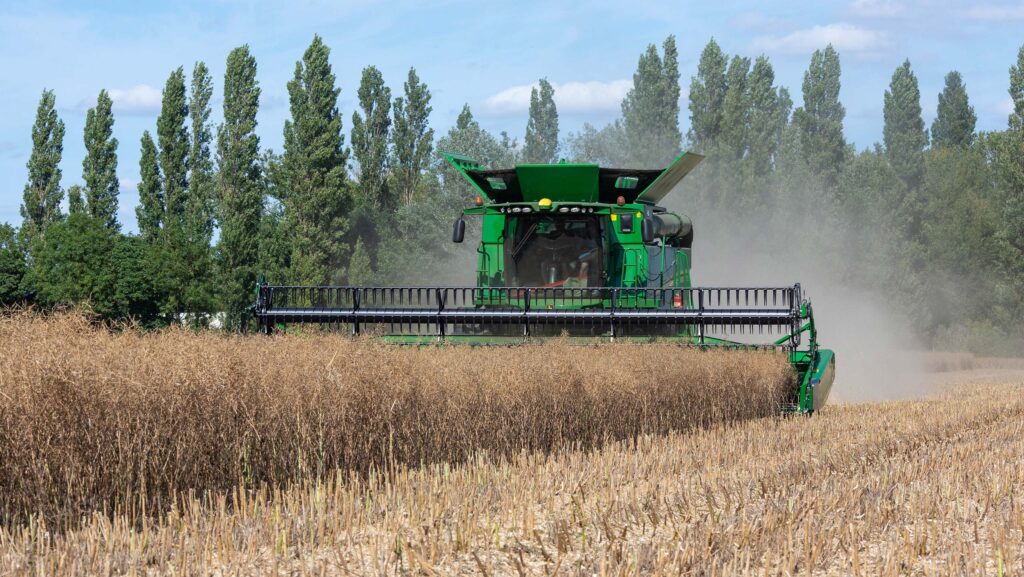Poor OSR yields limit UK production while trade hits £380/t
 © Tim Scrivener
© Tim Scrivener Tough growing conditions and disease pressure have left oilseed rape yields below 3t/ha this harvest. However, good oil bonuses could provide some support for growers.
Estimated yields were down by 9% on the year across the UK and averaged 2.93t/ha.
Cabbage stem flea beetle (CSFB) once again damaged crops and yields varied in different regions, with significant reductions in Yorkshire, the West Midlands and the South West, but some better yields on lighter ground.
See also: Harvest puts focus on tight straw supplies and wheat quality
Peter Collier, area manager at United Oilseeds, said: “Light land has outperformed heavy land, which is unusual. Rapeseed just doesn’t like being stood in wet fields for as long as some of it was.”
He added that UK production was likely to be between 800,000t and 900,000t and therefore heavily reliant on imports again this year.
Oil content
Early industry estimates have pegged oil content at about 45%, with some crops achieving in excess of 47%, while moisture levels have typically varied between 6.7% and 10.2%.
Mr Collier told Farmers Weekly that higher average oil content this year should help to strengthen prices.
“On average we are about 0.5% to 1% higher for oil content this year than last year, which is surprising but certainly welcome.
“If you ballpark a decent oil bonus at £15/t to £25/t it can make a significant difference and could put prices above the £400/t mark when including the bonus.”
Prices collected by Farmers Weekly put oilseed rape at £373/t ex-farm on 28 August.
Delivered prices for September, collected midweek, ranged from £368/t for Inverness to £392/t for Erith and Liverpool.
Cropping intentions
Mr Collier forecast a reduced planted area in the UK for rapeseed next year, citing a combination of poor yields, flea beetle issues, and the impact of SFI schemes on break crops.
He said there was a little bit more positivity in some regions such as East Anglia, where yields were better this year and CSFB pressure was relatively low.
“OSR is still one of the best gross margin break crops you can do, it’s just that there’s a risk to it, which is why the establishment schemes are so key.”
Global markets
Global and domestic oilseeds markets are relatively bullish, with supplies looking tight across Europe.
The EU crop monitoring service reduced yields to 3.07t/ha, below the five-year average of 3.17t/ha.
Mr Collier said yields across Europe had been pretty poor and in France had been well below 3t/ha.
Sunflower production in Romania and Ukraine is also likely to be down, adding further support to prices.
Rapeseed production in Canada had previously been forecast by industry to be high. However, more recent poor weather in the country may lead to reduced yields.
Pulses in demand
Global demand for pulses has been growing, according to RaboResearch, with the global pulses trade having increased by almost 30% since 2015.
Vito Martielli, senior grains and oilseeds analyst for RaboResearch, said pulses were increasingly sought after as an affordable and essential protein source in emerging countries, and were often used in plant-based substitute products in developed markets.
He said: “Creating more market transparency will be the key to attracting investment to the industry, meeting the growing demand for pulses, and improving trade volumes and market functionality.”
The numbers
- 2.93t/ha Average UK oilseed rape yields for harvest 2024
- £15-£25/t Potential oil bonus available for growers
- £373/t Ex-farm oilseed rape on 28 August
